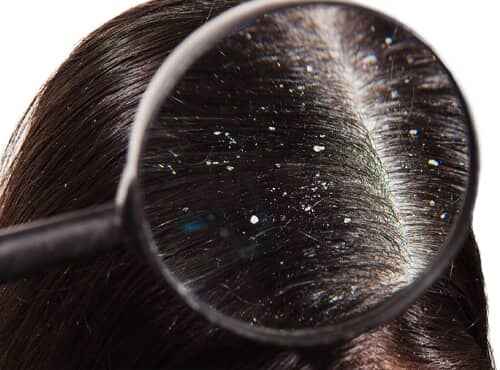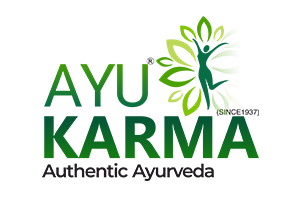Dandruff Treatment in Ayurveda AyurKarma
Ayurvedic Remedies, Therapies, and Advice for All Your Health Issues, Recommended by Expert Health Professionals
What is Ano Dandruff?

Dandruff is a common hair condition. Almost 50% of people are affected by dandruff worldwide.
Those dry, white flakes of skin when you brush your hair is harmless, though. They can be a cause of worry. Dandruff is not basically about your hair or how often you wash it. Poor hygiene is not the cause, but the flakes appear to be visible if the hair is not washed properly. Perhaps, it is linked to the skin on the scalp.
The skin cells that grow and break off too fast are the problem. Although researchers still don’t know the exact cause of dandruff in many cases.
Less likely, a common fungus called Malassezia may contribute to the awry growth of dandruff. This fungus grows on the scalp without causing other life-threatening complications.
The other common cause of dandruff is the immune system that may overreact to the fungus and result in dandruff. Usual triggers include stress or an underlying illness. Cold, dry winters can trigger dandruff or make the condition seem worsening.
Signs and Symptoms
If you have dandruff, you may be able to experience signs of itching, along with:
- Visible flakes on the scalp, eyelashes, eyebrows, ear, and heavy beard or moustache in males.
- Dry and itchy scalp.
- At times, the scalp can be itchy
- Greasy or dry scales on the scalp
- Yellowish to reddish scaly raised bumps along the hairline (in severe cases, as per the hair colour).
Causes and Risk Factors of Dandruff
The many causes and risk factors include:
Seborrheic Dermatitis
If you have particular complications of dandruff, you are likely going through eczema called seborrheic dermatitis (SD). According to the doctors, SD affects the area of the body that has the most sebum or oils, including your hair scalp.
Yet another reason is the presence of a yeast called Malassezia Globosa on the scalp. In many cases, the immune system considers the breakdown of oil as a trigger, so the scalp reacts by speeding the growth of new cells, causing dandruff.
Contact Dermatitis
In contact dermatitis, the skin irritation is either caused by an allergen or an irritant, resulting in an itchy, possibly painful rash, most probably on the scalp. This generally occurs due to hair products or dyes. Often, washing infrequently also affects the situation even more.
Dry Skin
Winters also affect dandruff. In winters, air dries out the skin, including that of the scalp. Further, having dry skin in the winter may also relate to the risk of dandruff. But if the dry skin is the cause, probably, the flakes are smaller than usual and less oily.
Risk Factors
- Age: You might not have realized this, but dandruff often begins at puberty and intensify in the mid-20s. Less likely it is going to affect people in their 50s.
- Hormones: Sex Hormones, including testosterone, stimulate activity in the sebaceous glands which means more oil. Thus, there is an increased chance of an inflammatory reaction and dandruff. This is why men are more likely to get affected with dandruff than women do.
- Weakened Immune System: Seborrheic Dermatitis likely occurs in individuals who have undergone a transplant surgery or those with HIV or AIDS or hepatitis C or alcoholic pancreatitis.
- History of other skin disorders: Having had eczema or psoriasis or rosacea or acne can also elevate the risk of seborrheic dermatitis.
- Oily skin: If you have oily skin, your risk of seborrheic dermatitis rises up.
- Neurological conditions: Conditions such as Parkinson’s disease, epilepsy, traumatic brain injury, spinal cord injury, Alzheimer’s disease, etc., can swell up your risk of seborrheic dermatitis, including dandruff.
Ayurvedic treatment for Dandruff
In Ayurveda, dandruff is considered a disease of imbalanced Pitta and Vata. The condition is categorized as Shudra Roga Dranakam, which appears to be a result of imbalanced doshas. This imbalance results in the production of toxins or impurities called Ama, which is dry and heating in nature. Over time, the toxins tend to dig deeper into the tissues of the scalp and contaminate them.
In order to fight this accumulation of toxins, the deep tissues holding waste compounds react by causing itchiness and patches on the scalp. Due to this, the scalp breaks off abnormal amounts of dead epidermal cells. The result is more dandruff as produced by the scalp.
The core solution to this problem is the addressal of Vata and Pitta imbalance by way of herbal and self-cleansing herbs that aim to detoxify the body. Also, the aggravated energies within also get calmed within the time frame.
At AyuKarma, we have treatment to help you get rid of dandruff without ant allopathic interventions. Using allopathic medicines can be harmful to the health, so we recommend our patients ayurvedic and herbal remedies to get rid of dandruff in the easiest ways.
Approved by

Certificate no- AH-2022-0145
FEB 23,2022 - FEB 22,2025
